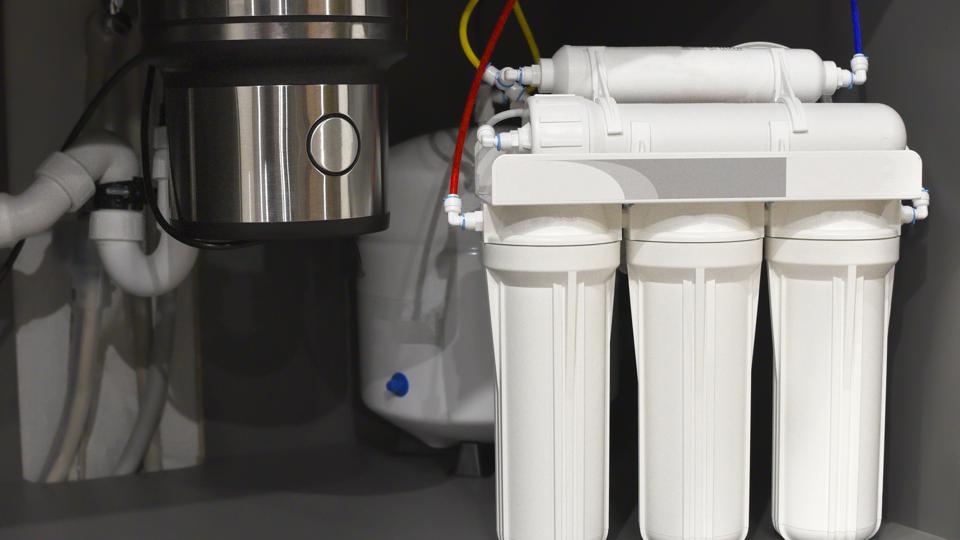In your search for clean and safe drinking water, you may have wondered what the most common water filtration system is. From faucet-mounted filters to pitcher filters, there are various options available on the market. In this article, we will explore the most widely used water filtration system that ensures you and your family have access to clean water at all times. So, sit back, and let’s discover the answer to this question.
Different types of water filtration systems
There are several different types of water filtration systems available on the market today, each with its own unique features and benefits. Whether you are looking to improve the taste and quality of your drinking water or want to ensure the water you use for cooking and bathing is free from contaminants, it’s important to choose the right filtration system for your needs. Here are five of the most common types of water filtration systems:
Activated carbon filters
Activated carbon filters are one of the most popular and widely used types of water filtration systems. These filters work by attracting and trapping contaminants, such as chemicals, pesticides, and sediment, to improve the taste and quality of your water. Activated carbon filters can be found in various forms, including cartridges, granules, or blocks, and are effective in removing chlorine, volatile organic compounds (VOCs), and unpleasant odors.
Reverse osmosis filters
Reverse osmosis filters are another common type of water filtration system that uses a semi-permeable membrane to remove impurities from water. These filters work by applying pressure to the water, forcing it through the membrane and leaving behind contaminants. Reverse osmosis filters can remove a wide range of impurities, including heavy metals, bacteria, viruses, and dissolved solids, making them an excellent choice for those who want to ensure their water is as pure as possible.
UV filters
UV filters, also known as ultraviolet filters, use ultraviolet light to kill bacteria, viruses, and other microorganisms in the water. These filters are effective in neutralizing harmful pathogens and are commonly used in combination with other filtration methods, such as activated carbon or reverse osmosis, to provide comprehensive water purification. UV filters are particularly useful for well water or water sources that may be prone to bacterial contamination.
Ceramic filters
Ceramic filters are a type of water filtration system that utilizes a ceramic cartridge to remove impurities from water. These filters feature small pores that trap bacteria, sediment, and other contaminants, ensuring the water you drink is clean and safe. Ceramic filters are often used in portable or countertop water filtration systems and can be easily cleaned or replaced when needed.
Gravity filters
Gravity filters are a simple yet effective way to filter water without the need for electricity or complicated installations. These filters rely on gravity to push the water through a series of filters, removing impurities as it passes through. Gravity filters are commonly used for camping, hiking, or emergency situations where access to clean water may be limited. They are lightweight, portable, and easy to use, making them a convenient option for those on the go.
Factors to consider when choosing a water filtration system
When choosing a water filtration system, there are several factors to consider to ensure you select the right one for your needs. Here are some key factors to keep in mind:
Contaminant removal
Different water filtration systems are designed to remove specific contaminants. Before purchasing a filtration system, it’s essential to identify the impurities that are present in your water to choose a system that can effectively remove them. Some common contaminants include sediment, chlorine, heavy metals, pesticides, herbicides, bacteria, and viruses. Look for a filtration system that specifically targets the contaminants you are concerned about.
Flow rate
The flow rate of a filtration system refers to the speed at which water flows through the system. The flow rate is typically measured in gallons per minute (GPM) or liters per minute (LPM). The flow rate can vary depending on the type of filtration system and the specific model. Consider your household’s water usage and the number of faucets or fixtures that will be connected to the filtration system to ensure it can supply enough filtered water to meet your needs.
Ease of installation and maintenance
Consider how easy it is to install and maintain the water filtration system. Some systems require professional installation, while others can be easily installed by the homeowner. Additionally, consider the maintenance requirements of the system, such as filter replacements and cleaning. Look for a system that is user-friendly and requires minimal maintenance to ensure hassle-free operation.
Cost
The cost of a water filtration system can vary significantly depending on the type, brand, and specific features. It’s important to set a budget and determine how much you are willing to invest in a filtration system. Keep in mind that higher-priced systems often come with additional features or advanced filtration technologies, but it’s essential to choose a system that provides good value for your money.
Filter lifespan
The lifespan of the filters used in the filtration system is an important consideration. Different filters have varying lifespans and will require periodic replacements. Some filters may need to be replaced every few months, while others may last up to a year or more. Consider the cost and frequency of filter replacements to ensure the ongoing maintenance is manageable for you.
Certifications
Look for water filtration systems that have been tested and certified by reputable organizations, such as the NSF (National Sanitation Foundation) or the WQA (Water Quality Association). These certifications provide reassurance that the system has met strict standards for performance and contaminant removal. Additionally, consider choosing a system that is certified under ANSI/NSF Standard 53, which ensures the system’s effectiveness in removing specific contaminants, such as lead or VOCs.
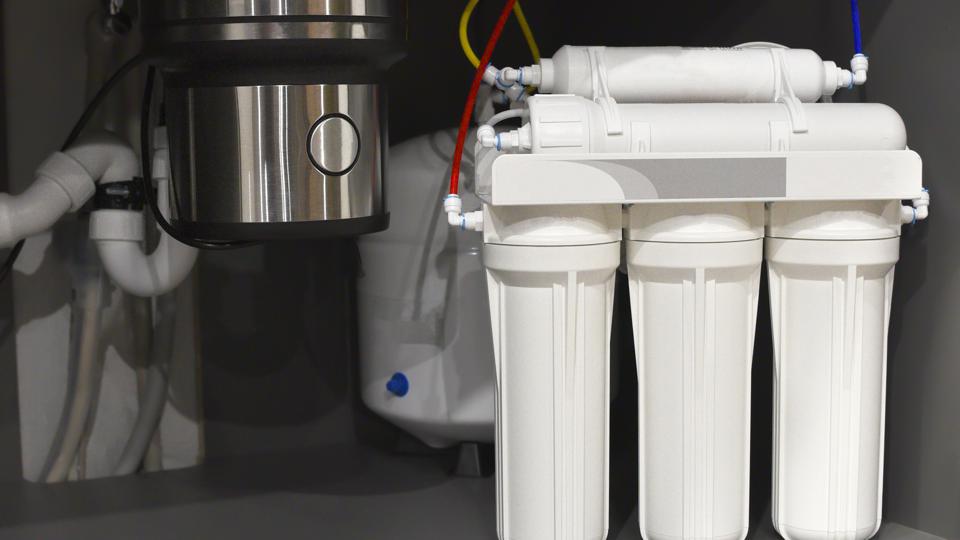

This image is property of thumbor.forbes.com.
Activated carbon filters
Activated carbon filters utilize a highly porous form of carbon to trap and remove impurities from water. The carbon material used in these filters is treated to increase its surface area, allowing it to attract and adsorb a wide range of contaminants. When water passes through the filters, the activated carbon traps pollutants like chlorine, heavy metals, and organic compounds, leaving behind cleaner and better-tasting water.
One of the advantages of activated carbon filters is their versatility. They can be used in various filtration systems, including faucet-mounted filters, pitcher filters, and whole-house filtration systems. Additionally, activated carbon filters are cost-effective and relatively easy to maintain. The main disadvantage of these filters is that they may not effectively remove all contaminants, such as dissolved solids or bacteria. However, they are still an excellent option for improving the taste and odor of your water.
Activated carbon filters are commonly used in residential settings, particularly for point-of-use filtration, where they can be easily installed under the sink or connected to a faucet. They are also used in commercial applications, such as restaurants or coffee shops, to enhance the quality of drinking water and improve the flavor of beverages.
Reverse osmosis filters
Reverse osmosis filters use a semi-permeable membrane to remove impurities from water by applying pressure to it. The water is forced through the membrane, while contaminants are left behind, resulting in purified water. These filters are highly effective in removing a wide range of impurities, including dissolved solids, heavy metals, bacteria, viruses, and pesticides.
One of the main advantages of reverse osmosis filters is their ability to produce high-quality, purified water. They can remove up to 99% of contaminants, ensuring that the water you drink is clean and safe. Reverse osmosis filters are also relatively low maintenance, requiring filter replacements every 6 to 12 months, depending on usage. However, they can be costlier compared to other filtration methods, and the filtration process can be slower, resulting in reduced flow rates.
Reverse osmosis filters are commonly used in residential settings, particularly in areas with high levels of dissolved solids or other water quality issues. They are also popular in commercial applications, such as restaurants or laboratories, where the purity of water is crucial for various processes or products.
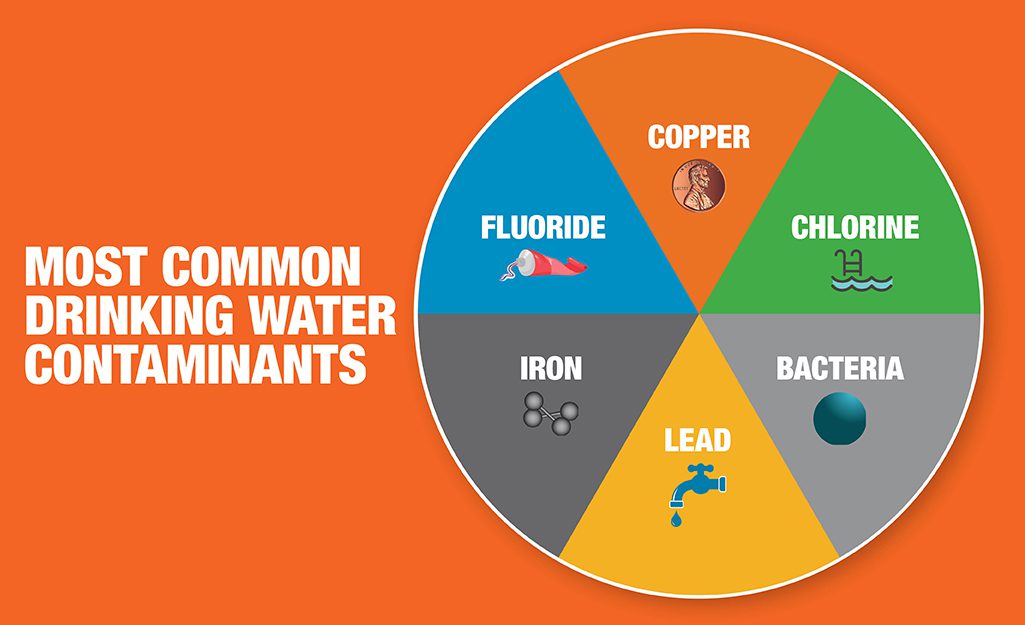

This image is property of contentgrid.homedepot-static.com.
UV filters
UV filters utilize ultraviolet light to disinfect water by neutralizing harmful microorganisms, including bacteria, viruses, and protozoa. The UV light damages the genetic material of these pathogens, preventing them from reproducing and rendering them harmless. UV filters are highly effective in killing a wide range of microorganisms and are often used in combination with other filtration methods to provide comprehensive water purification.
One of the significant advantages of UV filters is their ability to rapidly disinfect water without the use of chemicals. They do not alter the taste, smell, or pH of the water, making them an excellent choice for those who prefer natural purification methods. UV filters also have lower maintenance requirements, typically requiring bulb replacement once a year. However, UV filters cannot remove other types of contaminants, such as chemicals or heavy metals, so they are often used alongside activated carbon or reverse osmosis filters.
UV filters are commonly used in residential settings, particularly for well water or other water sources that may be prone to bacterial contamination. They are also used in commercial applications, such as hospitals or laboratories, where the prevention of waterborne illnesses is crucial.
Ceramic filters
Ceramic filters use a porous ceramic cartridge to remove impurities and provide clean drinking water. These filters feature small pores that trap bacteria, sediment, and other contaminants, ensuring the water you drink is safe and free from harmful microorganisms. Ceramic filters are particularly effective in removing turbidity and pathogens, making them an excellent option for areas with poor water quality.
One of the advantages of ceramic filters is their long lifespan. They can last for several months or even up to a year before requiring replacement, depending on usage and maintenance. Ceramic filters are also easy to clean, usually requiring a simple scrubbing or brushing to remove accumulated impurities. However, ceramic filters cannot remove chemicals or dissolved solids, so they are often used alongside other filtration methods, such as activated carbon or reverse osmosis filters.
Ceramic filters are commonly used in portable or countertop water filtration systems, where they can provide clean drinking water on the go. They are also used in emergency situations or areas with limited access to clean water, as they are affordable and easy to use.
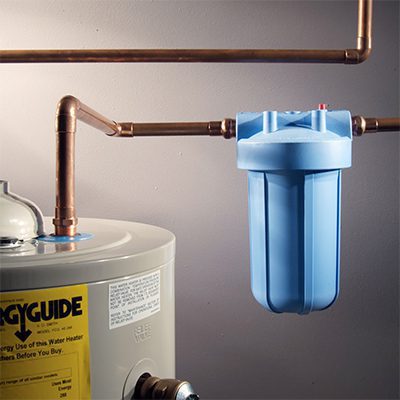

This image is property of contentgrid.homedepot-static.com.
Gravity filters
Gravity filters are a simple and convenient way to filter water without the need for electricity or complicated installations. These filters rely on gravity to push the water through a series of filters, removing impurities as it passes through. Gravity filters typically consist of multiple filtration stages, including ceramic, activated carbon, or sediment filters, to provide comprehensive water purification.
One of the main advantages of gravity filters is their portability and ease of use. They are lightweight and do not require any power source, making them ideal for camping, hiking, or emergency situations where access to clean water may be limited. Gravity filters are also relatively low maintenance, requiring periodic cleaning and filter replacements. However, one drawback is that the filtration process can be slower compared to other systems, resulting in reduced flow rates.
Gravity filters are commonly used in outdoor settings, such as camping trips or disaster relief operations, where clean drinking water is essential. They can also be used in homes or offices as a cost-effective and eco-friendly alternative to other filtration systems.
Contaminant removal
Water filtration systems are designed to remove specific contaminants to improve the taste, quality, and safety of the water you consume. Here are some common types of contaminants that water filtration systems can effectively remove:
Sediment removal
Sediment refers to particles or debris, such as sand, silt, or rust, that can be present in water. Sediment can affect the taste, appearance, and quality of water and should be removed through filtration. Many water filtration systems, including activated carbon, ceramic, and reverse osmosis filters, are effective in removing sediment and improving water clarity.
Chlorine removal
Chlorine is commonly used as a disinfectant in municipal water supplies to kill harmful microorganisms. However, the presence of chlorine can result in an unpleasant taste and odor. Activated carbon filters and reverse osmosis filters are effective in removing chlorine, improving the taste and odor of water.
Heavy metal removal
Heavy metals, such as lead, mercury, arsenic, and cadmium, can be present in water sources due to natural deposits or industrial contamination. These metals can have harmful effects on human health, so it’s essential to remove them from drinking water. Reverse osmosis filters and activated carbon filters with specific heavy metal removal capabilities can effectively reduce the concentration of these contaminants.
Pesticide and herbicide removal
Pesticides and herbicides are chemicals used in agriculture to control pests and weeds. These chemicals can find their way into water sources and pose health risks if consumed. Activated carbon filters and reverse osmosis filters can effectively remove many types of pesticides and herbicides, ensuring that the water you drink is free from these harmful substances.
Bacteria and virus removal
Bacteria and viruses are microorganisms that can cause waterborne illnesses if consumed. UV filters and ceramic filters are particularly effective in neutralizing bacteria and viruses, providing an additional layer of protection against waterborne pathogens. Reverse osmosis filters can also remove bacteria and viruses, but the membranes used in the filters should have a small enough pore size to block these microorganisms effectively.
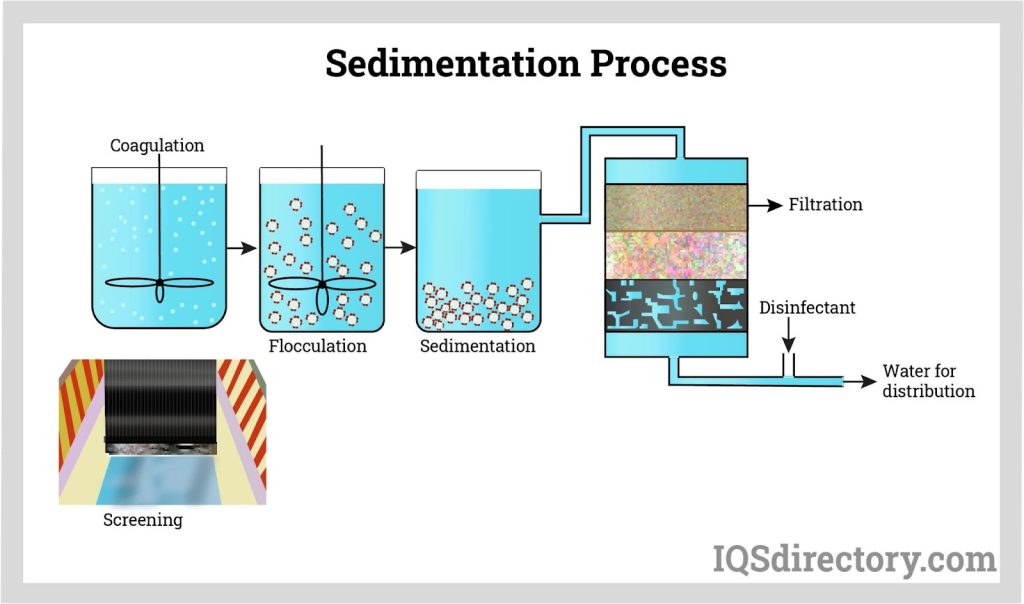

This image is property of www.iqsdirectory.com.
Flow rate
The flow rate of a water filtration system refers to how quickly water passes through the system. The flow rate is typically measured in gallons per minute (GPM) or liters per minute (LPM). The flow rate can vary depending on the type of filtration system and the specific model. It’s important to consider the flow rate when choosing a water filtration system for your home or business. Here are some factors that can affect the flow rate:
Factors affecting flow rate
- Filter type: Different types of filters have varying flow rates. Some filters, like activated carbon filters or ceramic filters, generally have higher flow rates compared to reverse osmosis filters or UV filters.
- Filter condition: A clogged or dirty filter can restrict the flow of water, resulting in a lower flow rate. Regular maintenance and filter replacements are essential to ensure optimal flow rates.
- Water pressure: The incoming water pressure from your water source can affect the flow rate. Higher water pressure usually results in a higher flow rate, while lower water pressure may result in a slower flow rate.
- Plumbing system: The design and condition of your plumbing system can also impact the flow rate. Older or corroded pipes may restrict the flow of water, reducing the overall flow rate.
Importance of flow rate
The flow rate of a water filtration system is an important consideration, especially if you have multiple faucets or fixtures that will be connected to the system. A low flow rate can be inconvenient and may result in slower filling of containers, reduced water pressure at faucets, or longer wait times for filtered water. On the other hand, a high flow rate may indicate that the filtration system is not effectively removing contaminants.
When choosing a water filtration system, consider your household’s water usage and the number of faucets or fixtures that will be connected to the system. It’s essential to choose a system with a flow rate that can supply enough filtered water to meet your needs without sacrificing water pressure or convenience.
Certifications
When choosing a water filtration system, looking for certifications from reputable organizations can provide reassurance that the system has been tested and proven effective in addressing specific contaminants. Here are some certifications you can look for when selecting a water filtration system:
NSF certification
The NSF (National Sanitation Foundation) is an independent organization that tests and certifies water filtration systems for their performance and contaminant removal capabilities. NSF certifications are widely recognized and provide assurance that the filtration system has met strict standards for safety and effectiveness. Look for water filtration systems that have been NSF certified to ensure you are getting a reliable and trustworthy product.
WQA certification
The WQA (Water Quality Association) is another reputable organization that provides certifications for water filtration systems. WQA certifications ensure that the system has been tested and meets specific industry standards for performance and contaminant removal. Water filtration systems with WQA certifications are recognized for their quality and effectiveness in improving water quality.
ANSI/NSF Standard 53 certification
ANSI/NSF Standard 53 is a specific certification that focuses on the ability of a water filtration system to remove specific contaminants, such as lead, mercury, or VOCs (volatile organic compounds). This certification ensures that the system has been tested and proven effective in reducing these contaminants to safe levels. If you are concerned about specific contaminants in your water, look for a filtration system that has been certified under ANSI/NSF Standard 53 for those specific contaminants.
In conclusion, choosing the right water filtration system for your needs is crucial to ensure the water you consume is clean, safe, and meets your quality standards. Consider the different types of water filtration systems available, such as activated carbon filters, reverse osmosis filters, UV filters, ceramic filters, and gravity filters, and evaluate their advantages, disadvantages, and common applications. Additionally, take into account factors such as contaminant removal, flow rate, ease of installation and maintenance, cost, filter lifespan, and certifications to make an informed decision. By selecting a reliable and effective water filtration system, you can enjoy the benefits of clean and great-tasting water for you and your family.
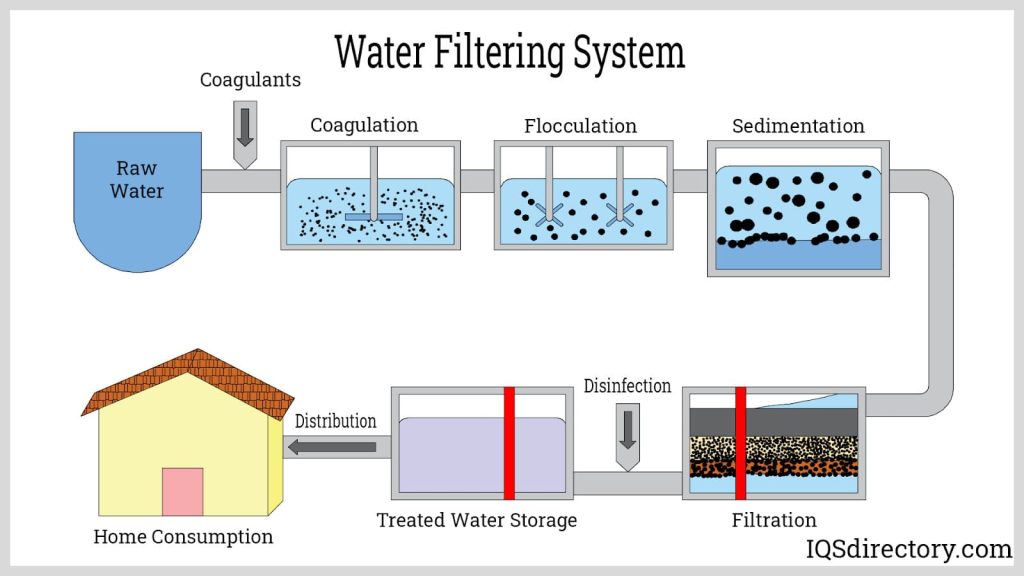

This image is property of www.iqsdirectory.com.

